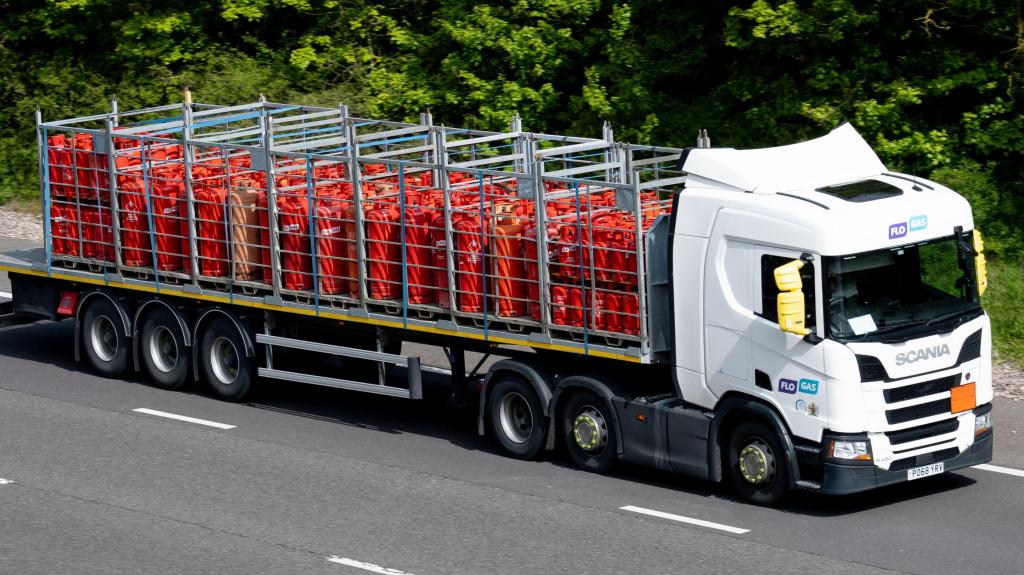DCC, a prominent company within the FTSE 100, has unveiled a significant restructuring plan aimed at consolidating its focus on the energy sector while divesting its healthcare and technology segments, collectively valued at approximately £2 billion.
This strategic shift has resulted in a 14.2% surge in DCC’s share price, increasing by 704p to finish the day at £56.70.
Having maintained operations across three distinct divisions for the past decade, DCC will now concentrate on enhancing its energy services. Analysts have noted that simplifying its corporate structure could elevate the company’s market valuation.
The energy division already accounts for about 70% of DCC’s earnings before interest, tax, depreciation, and amortization, providing consulting and energy products primarily to commercial and industrial clients.
DCC has stated its intention to divest its healthcare division by the end of the next fiscal year and is currently exploring alternatives for its technology division, which acts as a distributor for major brands like Apple and Microsoft in the UK.
The healthcare segment includes DCC Vital, which supplies medical products and devices to hospitals and general practitioners, and DCC Health and Beauty, which manufactures nutritional and beauty products for brands such as Vitabiotics and Estée Lauder.
Chief Executive Donal Murphy commented on the energy sector’s growth, noting, “We are establishing a distinct, multi-energy, sustainable business that supports our clients’ transition towards various energy sources. Our strategy is set to drive substantial profit growth, deliver high returns, and significantly reduce carbon emissions for our customers.”

Analysts from Jefferies estimate that the healthcare division could fetch around £1.3 billion, while the technology arm is valued at roughly £800 million. Reports indicate that DCC Healthcare achieved an operating profit of £38.1 million during the first half of this financial year, with the technology unit closely following at £38.5 million.
Murphy further added, “Both the healthcare and technology sectors are currently attractive targets for private equity investors, and we believe these divisions will entice a variety of prospective buyers. This transition will benefit not only DCC’s shareholders, but also employees, as new ownership can foster growth and development.”
In addition, DCC has invested £130 million in acquiring energy-focused companies, including Wirsol, a German supplier of solar panels and battery storage solutions, as well as Acteam ENR, a French solar panel firm. The energy business also comprises Flogas, a notable provider of liquid petroleum gas.
In its latest update regarding half-year performance, DCC reported a 3% dip in total revenues, amounting to £9.3 billion for the six months leading to September 30, while pre-tax profit saw a modest increase from £129.7 million to £131.0 million.
Murphy expressed satisfaction with DCC’s results as a publicly traded entity, despite notable valuation differences between UK-listed companies and their US counterparts.
“Instead of blaming the market, we’re announcing this restructuring to present an increasingly compelling narrative for our shareholders, highlighting our position as a leading player in the energy industry,” he stated.
Moreover, he affirmed DCC’s commitment to the London market, asserting, “We are confident in our growth story and believe that the London market has a thriving future.”
Jefferies analysts described the restructuring as a key ‘catalyst’ that the market had been anticipating.
Sylvia Barker, an equity analyst at JP Morgan, remarked that the announcement has successfully delivered on expectations for a boost in share value.
In summary, Jefferies also highlighted that the complexity of DCC’s corporate form has been a burden on its stocks, signifying this restructuring as a necessary move to unlock shareholder value. Similarly, analysts from Peel Hunt noted that DCC aims to harness growth opportunities in the energy sector to maximize returns and shareholder value through disciplined capital allocation.
DCC’s journey began in 1976 as a venture capital initiative known as Development Capital Corporation, recognized as Ireland’s first private equity entity. Over the years, the company developed expertise in financing and supporting the growth of unlisted firms, evolving into a diversified conglomerate with interests in energy, healthcare, and technology distribution. Since listing on the London Stock Exchange in 1994, DCC has expanded its operations to 22 countries, employing over 16,000 individuals.
Murphy highlighted that DCC has built a robust client portfolio in the energy market by providing fossil fuel products like liquefied petroleum gas. The company’s foray into the energy sector began with the acquisition of Flogas in 1977, but as the global shift towards renewable energy intensifies, long-standing clients have sought alternative energy solutions and guidance for adapting their operations to a low-carbon future.
Consequently, DCC has developed a specialization in assisting clients transitioning to renewable energy sources while supplying necessary products to facilitate this change.
The substantial client base within commercial and industrial sectors has proven profitable given the significant adjustments required, compounded by new regulatory imperatives demanding enhanced reporting standards.
This year, DCC further expanded its portfolio by acquiring Next Energy, a retrofitting firm, in response to the increasing demand for home insulation upgrades and the installation of solar panels, reinforcing its status as the largest distributor of home heating oil in the UK.
